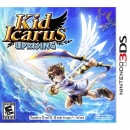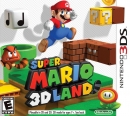You're not explaining your logic to me, which is making it hard for me to understand your position. You're advocating for a company to not lead its hardware launch with its best foot forward, when the last two console launches have been anemic-at-best because of their weak launches. Do you have any data to support your position that consoles do better with weaker launch lineups?
You're asking people to believe that it's better to give customers a crappy appetizer so they'll still have an apetite for the main course, notwithstanding that people have historically been more prone to buy systems and software when induced by a killer app. Do you have any data to indicate that a six-month wait for a killer app is more beneficial than a launch date release?
You're equating a series that sells 8-million with a series that sells 20+ million, on a evergreen basis, and then wondering why we don't follow your reasoning. You give no basis for this assertion. Do you have any?
You say it's because you're afraid of droughts, as if droughts are an inevitable effect of a strong launch and not just the result of poor planning. It's like arguing that a bird in the bush is worth two in the hand. Do you have anything to support the idea that a strong launch will create a drought?
You're willing to space out the Mario game, but you can't do the same with other games if you actually need to? Do you realize that you're advocating replacing one Mario game in the launch with no fewer than four separate first-party titles? Assuming you're diagnosing the danger of gaps correctly, if you want to space games out to avoid droughts, wouldn't it be more logical to start with the tentpole title, and then space the other four out to plug any gaps in the lineup?
And do you not recognize the irony in saying that "Nintendo needs a strong line up and Mario only hinders that" when you immediately follow it up with "Mario is far too powerful to he wasted at launch" (sic)?
Existing User Log In
New User Registration
Register for a free account to gain full access to the VGChartz Network and join our thriving community.
































































